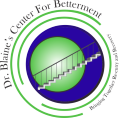We know that re-entering society can be challenging, we are here to assist in your transition. Our Re-entry Specialist will be the solution to all of your obstacles. Our specialists will have vast knowledge in reentering the community and will assist our client’s in changing their lives …
Cognitive Behavioral Therapy
Cognitive behavioral therapy (CBT) is a common type of talk therapy (psychotherapy). You work with a mental health counselor (psychotherapist or therapist) in a structured way, attending a limited number of sessions. CBT helps you become aware of inaccurate or negative thinking so you can view challenging situations more clearly and respond to them in a more effective way. CBT can be a very helpful tool ― either alone or in combination with other therapies ― in treating mental health disorders, such as depression, post-traumatic stress disorder (PTSD) or an eating disorder. But not everyone who benefits from CBT has a mental health condition. CBT can be an effective tool to help anyone learn how to better manage stressful life situations.
Motivational Enhancement Therapy
Motivational Enhancement Therapy (MET) is a counseling approach that helps individuals resolve their ambivalence about engaging in treatment and stopping their drug use. This approach aims to evoke rapid and internally motivated change, rather than guide the patient stepwise through the recovery process. This therapy consists of an initial assessment battery session, followed by two to four individual treatment sessions with a therapist. In the first treatment session, the therapist provides feedback to the initial assessment, stimulating discussion about personal substance use and eliciting self-motivational statements. Motivational interviewing principles are used to strengthen motivation and build a plan for change. Coping strategies for high-risk situations are suggested and discussed with the patient. In subsequent sessions, the therapist monitors change, reviews cessation strategies being used, and continues to encourage commitment to change or sustained abstinence.
Maintenance With No Shame
Shame is a painful emotion that responds to a sense of failure to attain some ideal state. Shame encompasses the entire self. The thought process in shame involves self-focused attention. The physical expressions of shame include the blushing face, slumped head, and averted eyes. It generates a wish to hide, to disappear, or even to die. Embarrassment has often been characterized as a mild form of shame. It results from trivial social transgressions, like tripping or belching, where the person does not feel that such events involve the self. Shame differs from guilt. Guilt involves a negative evaluation of a specific behavior. It is typically a less painful experience because the object of disapproval is a specific behavior, not the entire self. Guilt can be viewed as a more useful emotion motivating specific and corrective action, such as an apology or effort to undo the harm.
Thinking for a Change
Cognitive Behavior Programs have evolved over the last thirty years, impacted by a variety of theoreticians and practitioners. Much of the seminal work in cognitive interventions began with efforts of several professionals. Almost at the same time, and parallel to the development of the Cognitive Restructuring modalities, several social scientists were also exploring Cognitive Skills training, as a form of psycho-social-emotional interventions. They developed strategies and curricula to teach skills to skill deficit individuals. These early pioneers set the foundation and benchmarks for many of the programs and cognitive behavioral curricula currently developed and implemented, including those used throughout the criminal and juvenile justice systems.
Welfare Programs
A program to assist individuals that have committed drug related crimes and have been incarcerated as a result. Upon their release from jail/prison there are many aid programs that these individuals will be educated about and given assistance to fill out the appropriate forms of eligibility. The largest of these programs that most individuals need once they are released is Medical assistance. Dr. Blaine’s will contract with SCA so that these individuals will be able to have county insurance until they are eligible for MA. Additionally, as noted in the business plan that Dr. Blaine’s will be selectively scholarship individuals so that treatment will be available despite obstacles of insurance or finances. This program will also aid individuals in seeking financial aid in the interim of securing a job. Additionally, will educate individuals about short term disability (STD) for individuals that struggle with financial instability that detours them from seeking treatment.
Legal Document Attainment Program
This program will assist individuals in attaining documents such as ID’s, birth certificates, Driver licenses, Social Security. This will be done through the construction of viable relationships with such agencies. Aid in the work towards in the expungement of charges or further pardons of felonies. Assist these clients with other legal processes such as PFA and child custody.
Bus Pass Program
The challenge that many faces when they are released from jail/prison is transportation. Either for a lack of a vehicle or money to pay for insurance and by far the biggest challenge these individuals face is not having a driver license due to suspension or revocation. Dr. Blaine’s Bus Ticket Program is to provide a bus pass for those individuals that are not able to get to all appointments or work.
Education Program
By partnering with such agencies as OVR Dr. Blaine’s will assist client’s in realizing their fullest potential through higher education or trade skill school certificates. Educate individuals on FAFSA and the Department of Education funding. As well as establish educational goals, help hold them accountable to these goals and guide them through the process of education.
Bike Program
Partnering with a local citizen whose passion is cycling. Dr. Blaine’s will assist client’s that do not have transportation with bikes so that they are able to travel with a little bit of ease in town. Donated bicycles will be refurbished by Jason Fuhrman and donations are welcome.
Clean Cut Program
Partnering with Diversified Cuts, Dr. Blaine’s will enable reentrants and clients to maintain the routine of remaining clean cut. We are aware of how important it is to maintain our appearance however, we know this can be costly process. Dr. Blaine’s began this program with this cost in mind and will be partially offsetting this costs for our reentrants and client’s.
Health and Fitness Program
Partnering with local fitness suppliers, Dr. Blaine’s is securing a property large enough to house a gym on the premises exclusive to our clients and staff. Understanding that working out is a crucial part in maintaining a routine to curb some of our emotions and enhancing our physical appearance. This program will aid in building self-confidence and reducing the social anxieties that accompany being released from jail/prison and drug dependencies.

